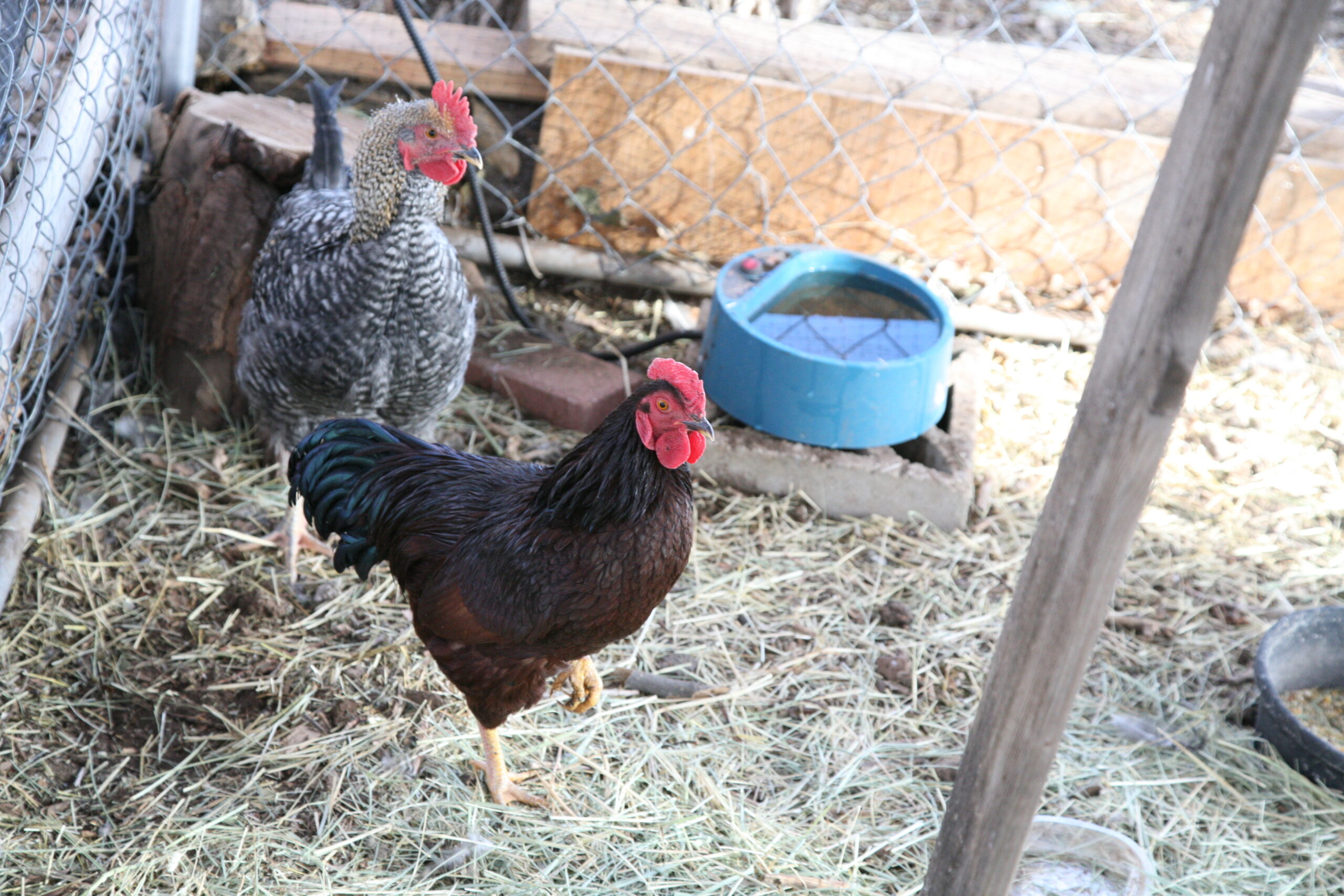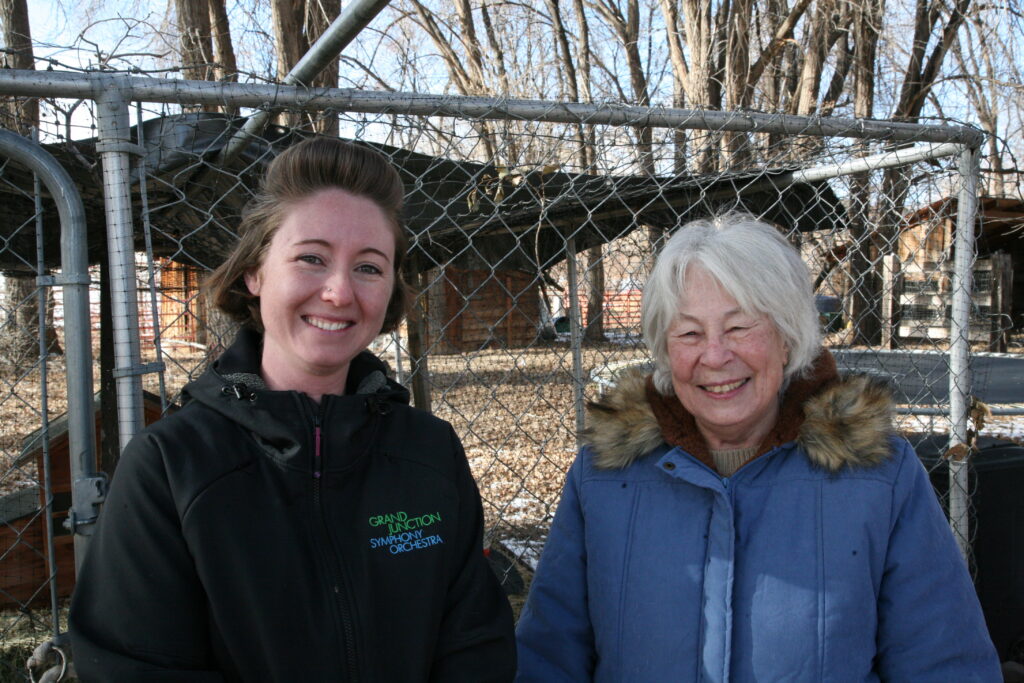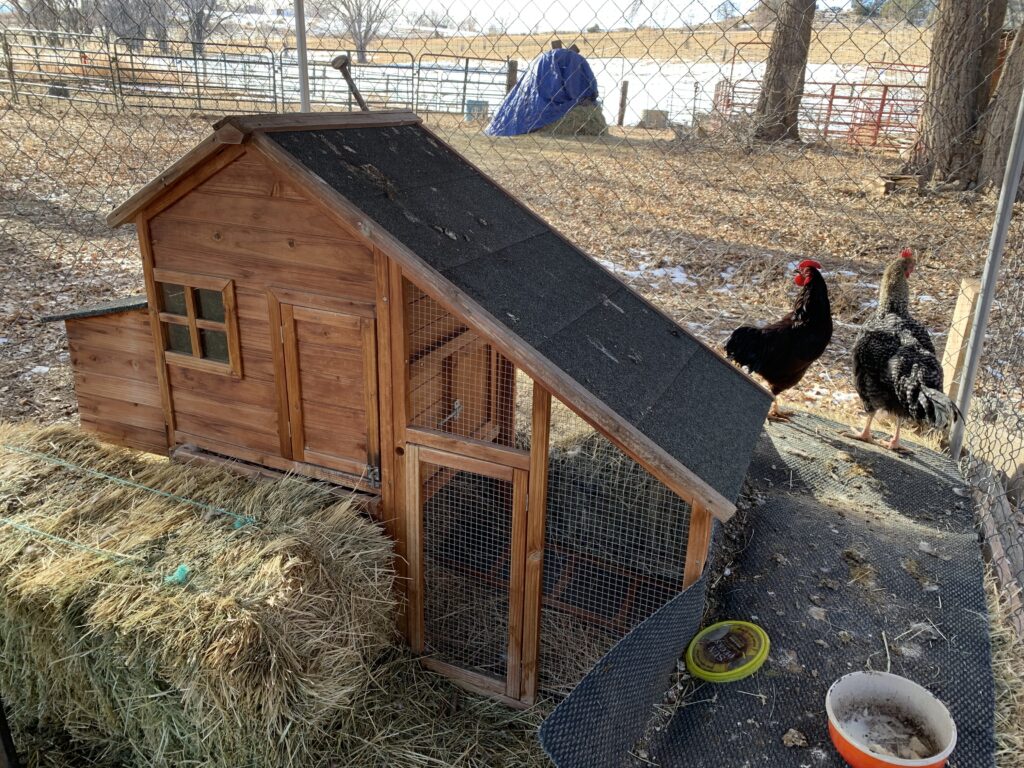
Sometimes love looks like a bowl of torn-up pieces of bread, soaking in warm milk.
Chris McIntosh brings it every day to the tiny wooden house in her yard, much to the delight of its residents. They also, by the way, enjoy worms — and getting up at 5:30 in the morning.
Having a chicken flock of two is “actually wonderful,” said McIntosh, as the fowl duo rooted around in their pen. A large, black-and-white-speckled bird named Birdie pecked at the ground, while a tiny, shiny bantam rooster the color of dark wood puffed himself up. He then let out a piercing crow.
“That’s Terence!” said McIntosh, a big smile on her face. “He’s announcing things.”
Terence looked so at home on this large spread in the high-desert farmland outside of Cedaredge, it seemed hard to believe he only recently became a resident. In fact, neither of these birds were ever supposed to be here.
The story really begins last spring, near the beginning of Colorado’s pandemic lockdown, when Chris’ daughter-in-law, Amanda Chipchase, walked into a large Grand Junction feed store.
“And, of course, March is when they have all the baby chickens, which, of course, just wrangle you in,” Chipcase admitted.
Though she only meant to get a bird feeder that day, she walked out with four tiny, charismatic chicks, which her young son promptly named after characters in “The Angry Birds Movie.” Her family had been meaning to get chickens “at some point,” she explained. So it seemed pretty perfect to do it when they’d be spending more time at home.

But there was a problem. She had noticed that the chicks had been labeled “straight run.”
“And I did not know what ‘straight-run’ meant,” she said, “And it means that you don’t know if it’s a boy or a girl.”
And those boys — roosters — aren’t allowed in Chipchase’s neighborhood in Grand Junction. She gradually figured out that half her chicks were male. Thankfully, she found them homes in the nearby farm community of Loma.
But when it came to one of the chicks, Terence — her favorite bird — Amanda lived in rooster denial as long as she could.
Then she heard him crow.
“Darn it,” she remembers thinking. “Oh man, where are we going to send this one?”
That’s when her mother-in-law, McIntosh, volunteered to take Terence — but just as a temporary arrangement.
McIntosh said she remembers taking him back to her home. She thought the little guy would have a “fit” in the dog carrier next to her during the car ride, but “he just looked at me the whole hour while I’m driving,” she said. “So I knew it was going to be OK with him and me.”
McIntosh had already owned chickens before, but that was years ago. After predators picked off her flock, she swore off keeping any more. So her plan was to sell Terence as soon as she could.
“I did run an ad for a couple of weeks,” she said.
Eventually, she even got a few calls.
“But after days of taking care of him and worrying about his house and making sure he was warm and dry, you know, that was that.”
Animal welfare folks affectionately call that a “failed foster.”
McIntosh and her husband, Dave, heavily fortified an old dog pen, and a friend lent a wooden hutch that looks like it dropped straight out of an architecture magazine. That same friend insisted Terence needed a companion. She soon showed up with Birdie, who was then a scruffy little chick.

“I didn’t want a second one, that’s for sure. But I have a second one,” McIntosh joked, with a light-hearted laugh.
She said she does wish that she could hold Terence, but when she walks into his pen, he goes into defensive mode and tries to protect Birdie, eons of rooster instinct coursing through him.
So McIntosh seems content now to just let Terence be Terence.
“He really is a great addition to this place, you know, and I never would have suspected it. You never know until you try,” she said. “But I don’t know what it would be like without him.”
As the saying goes, you find love when you’re not looking for it.
“And we do! We do love him!” Chris exclaimed.
Luckily, they also love Birdie, because a couple weeks later, Birdie started crowing, too. So now Chris now has two roosters, and both are here to stay.








